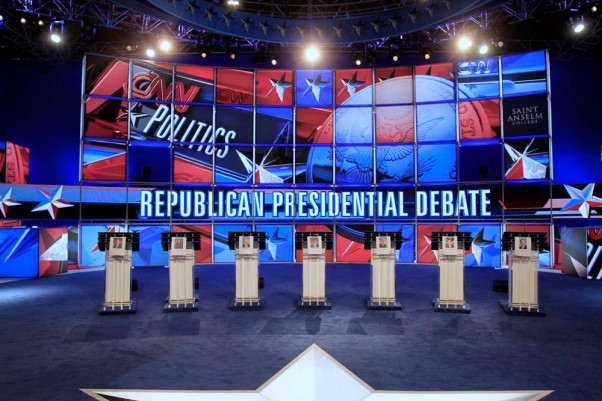The political process in the U.S. is somewhat complicated. Caucuses and primaries and delegates and electoral votes; Whew! And that’s the process just to elect our officials – once they’re elected, you need a full correspondent’s course to navigate the branches of government. But, for the purposes of this post, I’ll stick to making clear the roles of the caucus and the primary.
The Caucus
This is basically a political meeting. A group of people get together and vote to pre-select a candidate. It could be at the organizer’s house, it could be at a restaurant, it could be at a church; It can be anywhere. It’s a party and it can be as casual or as formal as the host/organizer makes it.
The votes are cast in just as casual a way as well. It can be written on a piece of paper and dropped in a hat or a really detail-oriented organizer may decide to have ballots printed. Just like a dinner party can have place cards or bean bag chairs. Extremes.
The Iowa caucus is a big deal because it’s the first political contest of the season, not because it has such a significant impact on the process. And like most things in the American society, it’s grown into something of much more significant importance than it was originally intended.
In fact, I contend that Iowa as a cross-section is NOT the best bell-weather for picking the right candidate. Iowa is not the most diverse state in the union and doesn’t appear to have any ideological ties to Washington. And while we hear voters and citizens say that they don’t want someone who’s a Washington insider as their representative, the expertise and savvy you need to navigate Washington is of great value after the elections are over. Having some idea for what’s about to happen when you get to The Hill is a good thing…
The Primary
This is an actual election to decide who should become the nominee for a political party in a general election. Fully organized, ballot locations set up, formal registration to vote, no guacamole dip. This is probably the most pure version of the voting process – it’s actually based directly on popular vote. Presidential elections are based on electoral votes. An explanation of that is for another time. 🙂
The first primary of an election season is usually New Hampshire. Again that means NH gets the blind stigma of importance based on being first, not necessarily being the litmus test for where the country stands. And NH, I would also contend, is not a very diverse state either. Very progressive in their thinking, but, the landscape for diverse audiences could use a little more rounding out.
The current race for the nomination
So the win for the first caucus goes to Rick Santorum – in a squeaker. The win for the first primary goes to Mitt Romney. And Newt Gingrich is still hanging on. He’ll likely win South Carolina which means Florida will be the tie breaker. I’ll bet Mitt Romney wins Florida. The demographics are in his favor in Florida.
But South Carolina and Florida have more diverse audiences than Iowa and New Hampshire. Much more hispanic voters; More black voters; More populous period – especially Florida. Florida’s population alone is twice the three previous combined. Fitting that Florida should be the tie breaker.
See you at the end of January in Florida…






